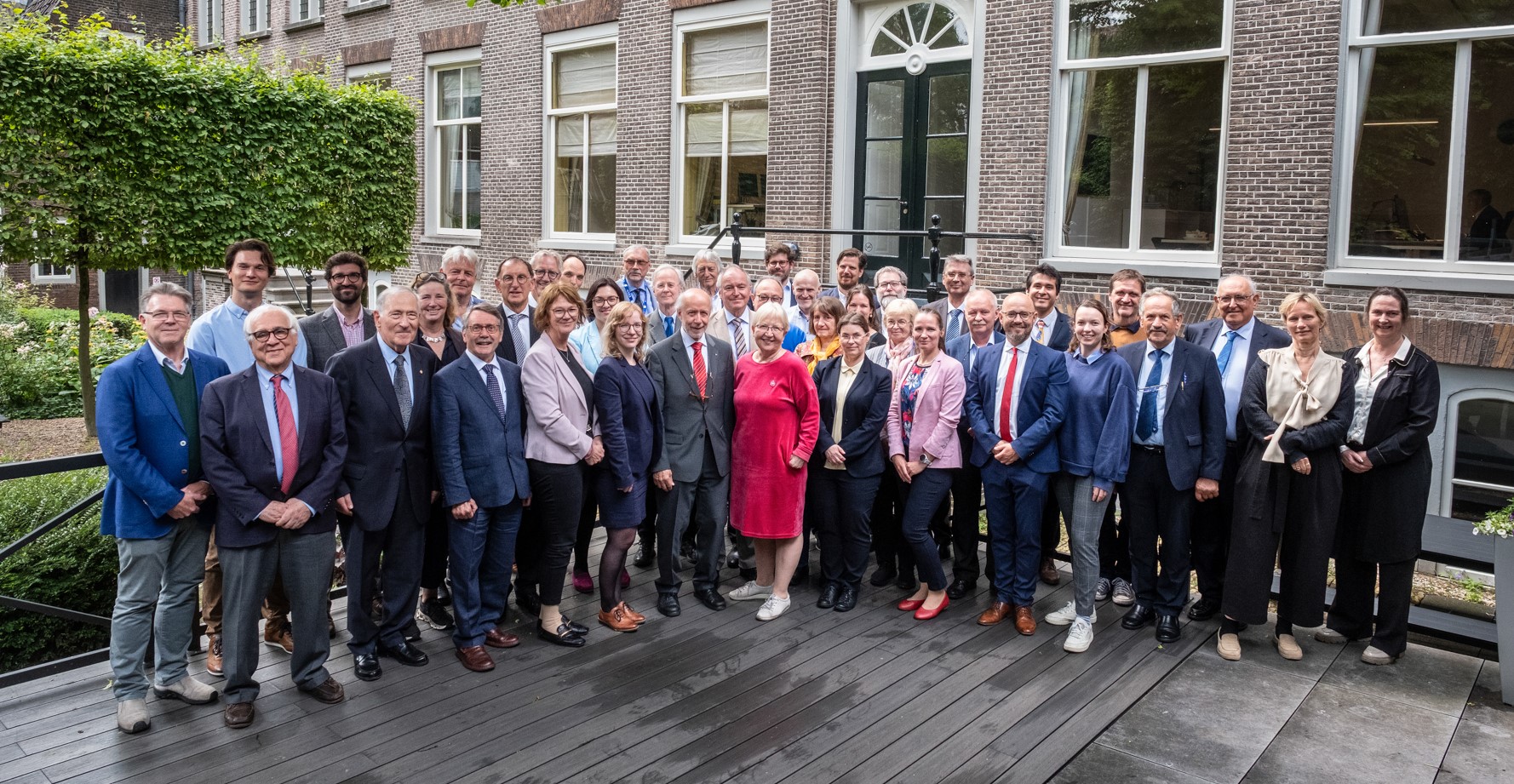EASAC Council
The Council is EASAC's supreme strategic and decision-making body. It is composed of 29 highly experienced scientists - one representative from each member academy.

Council is EASAC’s supreme strategic and decision-making body, responsible for steering the organization's direction and overseeing its core activities. Each EASAC member delegates one representative to the Council, typically serving up to two terms of three years. While serving in a personal capacity, these representatives are expected to liaise with their nominating academy on EASAC matters and act as ambassadors for EASAC in their respective countries.
Council is responsible for approving projects and monitoring the progress of the respective Working Groups. This includes reviewing their reports and endorsing final statements. EASAC’s Council also oversees a balanced composition within Steering Panels and endorses their Chairs upon proposal by the Board. Other key duties include approving the implementation and termination of EASAC Programmes, and approving EASAC’s strategy as well as overseeing its implementation. Finally, the Council is tasked with electing the Board, amending the Statutes, and approving the annual budget and financial report. Council meetings are held at least twice a year, with at least one in-person meeting.
EASAC's Collaborating Networks FEAM, the federation of European academies of medicine, and ALLEA, the federation of all academies in geographical Europe, have Observer status in Council.
EASAC Council Members
| Member | Discipline | Nominating body |
|---|---|---|
| Professor Georg Brasseur | Electrical Engineering | The Austrian Academy of Sciences |
| Professor Michel Crucifix | Physics | The Royal Academies for Science and the Arts of Belgium |
| Professor Evelina Slavcheva | Chemistry | The Bulgarian Academy of Sciences |
| Professor Mirko Orlić | Geophysics | The Croatian Academy of Sciences and Arts |
| Professor Costas N. Papanicolas | Solar and Particle Physics | The Cyprus Academy of Sciences, Letters and Arts |
| Professor Ondřej Santolík | Space Physics | The Czech Academy of Sciences |
| Professor Michael Broberg Palmgren | Molecular and Plant Biology | The Royal Danish Academy of Sciences |
| Professor Anne Kahru | Ecotoxicology | The Estonian Academy of Sciences |
| Professor Mats Gyllenberg | Mathematics | Council of Finnish Academies |
| Professor Francis-André Wollman | Biology | The French Academy of Sciences |
| Professor Dr. Bernhard Fleischer | Immunology | The German National Academy of Sciences Leopoldina |
| Professor Andreas J. Karamános | Agronomy | The Academy of Athens |
| Professor György Kosztolányi | Medical Genetics | The Hungarian Academy of Sciences |
| Professor Brian Norton | Physics and Engineering | The Royal Irish Academy |
| Professor Andrea Rinaldo | Hydrology | The Accademia Nazionale dei Lincei |
| Professor Ivars Kalvins | Chemistry | The Latvian Academy of Sciences |
Professor Jūras Banys | Physics | The Lithuanian Academy of Sciences |
| Professor Wim van Saarloos | Physics | The Royal Netherlands Academy of Sciences and Arts |
| Professor Lise Øvreås | Microbial Ecology | The Norwegian Academy of Science and Letters |
| Professor Romuald Zabielski | Veterinary Medicine | The Polish Academy of Sciences |
Professor Claudio Sunkel | Molecular Biology | The Academy of Sciences of Lisbon |
| Professor Marius Andruh | Chemistry | The Romanian Academy |
| RNDr Dana Jurkovičová | Oncology | The Slovak Academy of Sciences |
| Professor Franci Gabrovšek | Physics | The Slovenian Academy of Sciences and Arts |
| Professor Manuel de León | Mathematics | The Royal Academy of Exact, Physical and Natural Sciences of Spain |
| Professor Birgitta Henriques Normark | Clinical Microbiology | The Royal Swedish Academy of Sciences |
| Professor Irmi Seidl | Economy | Swiss Academies of Arts and Sciences |
| Professor Alison Noble | Biomedical Engineering | The Royal Society |
| Professor Donald B. Dingwell | Geology | Academia Europaea |
Representatives of Collaborating Networks
| Member | Discipline | Nominating body |
|---|---|---|
| Professor Marie Louise Nosch | Archaeology | ALLEA (All European Academies) |
Professor Ferry C. Breedveld | Rheumatology | FEAM (Federation of European Academies of Medicine) |





























